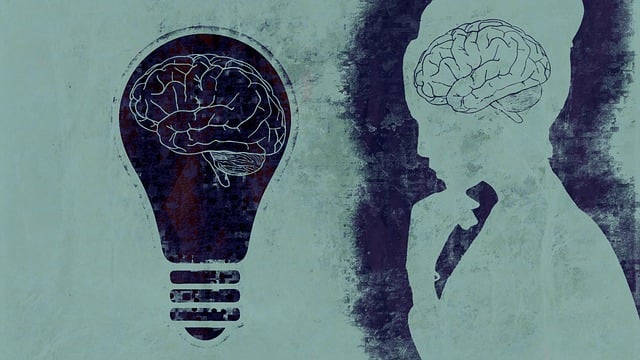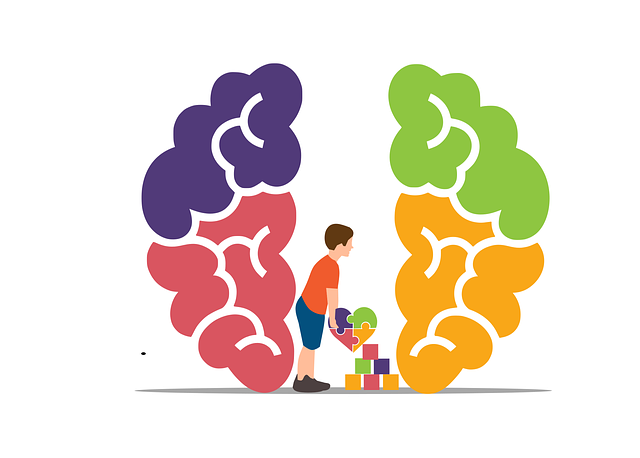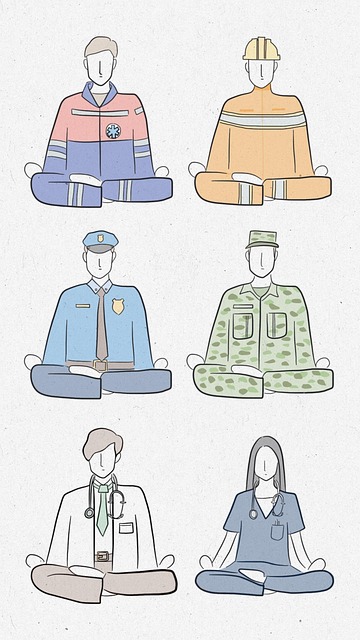Cultural sensitivity is vital in Aurora's Workplace Issues and Job Stress Therapy, where therapists must recognize diverse emotional expressions and cultural backgrounds to create tailored care plans. Integrating cultural awareness fosters open dialogue, enhances healing, builds trust, and improves therapy outcomes. This approach adapts therapeutic techniques to include traditional practices, addressing stress reduction for both clients and healthcare providers while ensuring accessible, effective, and beneficial mental health support for diverse populations.
In today’s diverse society, cultural sensitivity is paramount in mental healthcare. The practice of understanding and respecting diverse beliefs and behaviors can significantly improve patient outcomes. This article explores key aspects of cultural sensitivity, focusing on unique challenges presented by Aurora workplace issues and the integration of Job Stress Therapy with cultural awareness. By delving into these areas, we aim to enhance mental healthcare accessibility and effectiveness for all.
- Understanding Cultural Sensitivity in Mental Healthcare
- Aurora Workplace Issues: A Unique Challenge
- Integrating Job Stress Therapy with Cultural Awareness
Understanding Cultural Sensitivity in Mental Healthcare

Cultural sensitivity is a cornerstone in modern mental healthcare, recognizing that people from diverse backgrounds experience and express emotions differently. It involves understanding and appreciating cultural nuances, beliefs, values, and practices to provide care tailored to each individual’s unique needs. In Aurora, where Workplace Issues and Job Stress Therapy are prevalent, this approach is vital. By integrating cultural sensitivity, therapists can create a safe and supportive environment, fostering open dialogue and enhancing the emotional healing processes for clients from various ethnic, racial, and cultural backgrounds.
This awareness extends beyond simple communication; it encompasses adapting therapeutic techniques and interventions to respect and support traditional practices where relevant. For example, incorporating indigenous healing methods or considering religious beliefs can significantly impact a client’s experience of stress reduction and burnout prevention strategies for healthcare providers. Embracing cultural sensitivity not only improves therapy outcomes but also cultivates trust and strengthens the bond between therapist and client.
Aurora Workplace Issues: A Unique Challenge

In the context of mental healthcare, Aurora Workplace Issues present a unique challenge that requires tailored strategies. The demanding nature of this field often leads to high levels of stress and potential burnout among providers, especially when navigating diverse cultural backgrounds within their patient population. Healthcare professionals must be adept at managing job stress while ensuring they provide culturally sensitive therapy, which can be a delicate balance.
Addressing Aurora Workplace Issues involves implementing effective burnout prevention strategies for healthcare providers. This includes incorporating self-awareness exercises and stress management techniques into professional development programs. By fostering an environment that promotes open dialogue about work-life balance, mental health awareness, and the unique challenges faced by culturally diverse patients, healthcare organizations can create a supportive ecosystem that enhances the well-being of their staff.
Integrating Job Stress Therapy with Cultural Awareness

Integrating Job Stress Therapy with cultural awareness is a powerful approach to enhancing mental wellness among diverse populations. In an era where public awareness campaigns are increasingly recognizing the impact of workplace issues on mental health, it’s crucial for therapists and counselors to adapt their practices to cater to the unique needs of their clients from various cultural backgrounds. Aurora Workplace Issues and Job Stress Therapy, for instance, can be tailored to address specific stressors that may be more prevalent or manifest differently across cultures.
By incorporating cultural sensitivity into therapy sessions, professionals can foster resilience building among individuals who might otherwise face challenges in navigating workplace pressures. This involves not only understanding the individual’s cultural context but also being mindful of systemic barriers and biases that could contribute to their job stress. Such an inclusive approach ensures that mental health support is accessible, effective, and truly beneficial for everyone, regardless of their cultural identity.













